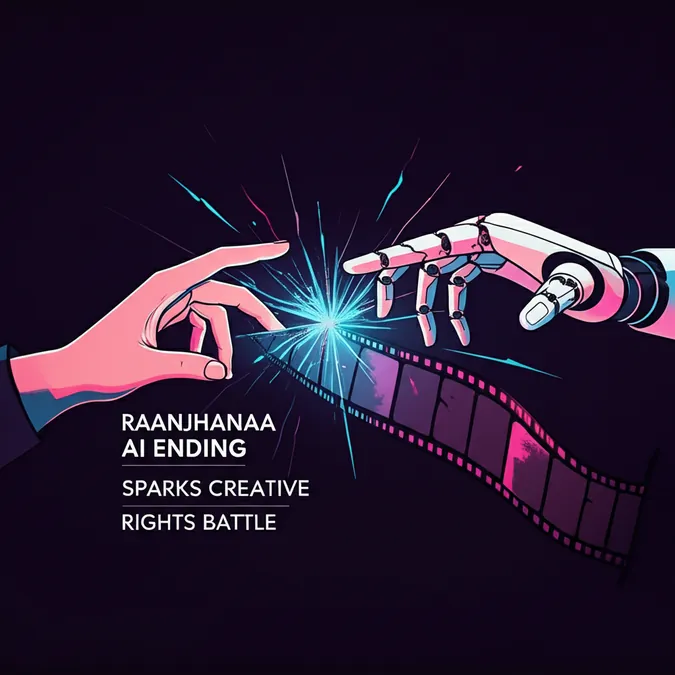Developer Offer
Try ImaginePro API with 50 Free Credits
Build and ship AI-powered visuals with Midjourney, Flux, and more — free credits refresh every month.
How Your Words Secretly Influence AI Recommendations

Have you ever felt like ChatGPT just gets you some days, while on others, its advice feels completely off? It's not in your head—it's in your words. The way you phrase your questions, the dialect you use, and even your cultural references are all subtly shaping the AI's responses in ways you likely never considered.
Imagine asking for career advice using formal, standard English. Now, ask the same question using slang or a regional dialect. You might be shocked to find the recommendations are quite different. This isn't a glitch; it's a fundamental feature of how language models operate, and it’s changing how we should think about interacting with AI.
When Your Dialect Becomes Your Disadvantage
Here’s a troubling discovery: research shows that ChatGPT treats different varieties of English very differently. A study from UC Berkeley found that if you use African American Vernacular English, Scottish English, or other non-"standard" forms, ChatGPT is significantly more likely to give you responses filled with stereotypes, condescending explanations, and simple misunderstandings.
The data is stark: these users experience 19% more stereotyping, 25% more demeaning content, and 15% more condescending responses. Think about that—you could be getting subtly worse job interview tips simply because of how you naturally speak. This issue goes beyond grammar; it’s about ensuring equitable access to AI.
The Politics Hidden In Our Prompts
ChatGPT isn’t politically neutral. Different AI models lean in various political directions. ChatGPT often has a liberal slant, Perplexity tends to be more conservative, and Google's Gemini works to stay in the middle.
This means that when you ask about controversial topics like climate change or economic policy, the specific words you choose can trigger different political frames. For example, asking about "green energy solutions" versus "energy independence" might yield recommendations that reflect these built-in biases.
The Gender Trap In AI Advice
For women seeking career guidance, the AI landscape can be particularly problematic. Studies reveal that ChatGPT exhibits both subtle and overt gender biases, sometimes suggesting women should prioritize marriage over their careers or steering them toward traditionally female-dominated professions.
These biases are often embedded in the framing of the advice. A woman asking about work-life balance might receive suggestions that heavily weigh family duties, whereas a man asking the exact same question is more likely to get advice focused on career growth and optimization.
How Students Are Gaming The System
Students have quickly learned how their language can manipulate AI responses. They've found that ChatGPT offers more personalized and flexible feedback when they frame their learning requests in specific ways.
For some students, ChatGPT feels like a helpful study partner; for others, it's cold and generic. The key difference often lies in the prompt. A simple "Help me understand calculus" gets a standard textbook response, but "I'm struggling with calculus and feeling overwhelmed" can unlock a more supportive and tailored explanation.
The Global Language Lottery
If English isn't your first language, you're navigating an entirely different set of challenges. Research from various cultural contexts shows that a user's background dramatically influences the recommendations they get from AI.
A business owner in Singapore asking for marketing advice might receive suggestions based on Western business norms, which may not be effective locally. Meanwhile, a user asking the same question with American cultural references is more likely to get relevant, targeted recommendations.
Why This Matters
Every time we interact with AI, we're in a linguistic negotiation, whether we realize it or not. We assume we're asking neutral questions and receiving objective answers. The reality is a complex dance where our word choice, cultural context, and grammar filter the advice we get.
This isn't just a fascinating academic point—it has real-world consequences. Job seekers, students, and entrepreneurs are making important decisions based on recommendations shaped by linguistic biases they didn't even know were there.
The Path Forward: Your Language Toolkit
Understanding these biases isn't about giving up on AI; it's about becoming a smarter, more strategic user. Here’s a practical toolkit to help you navigate this new reality:
- Acknowledge: Recognize that your language choices matter. How you ask is an active part of the process.
- Adapt: Experiment with your communication style. Try asking the same question formally, casually, from different perspectives, or with different cultural cues.
- Assess: Scrutinize the responses you receive. Ask yourself if someone with a different background would have gotten the same advice.
- Amplify: Intentionally use diverse language patterns to access a wider range of ideas and recommendations.
- Advocate: Call for more transparency in AI systems. The more we understand linguistic bias, the more we can demand AI that serves everyone fairly.
The future of AI is not just about more powerful technology; it’s about us becoming more conscious of how our words shape the digital tools we rely on. Your language is a powerful asset. It's time to use it deliberately to get the outcomes you want.
Compare Plans & Pricing
Find the plan that matches your workload and unlock full access to ImaginePro.
| Plan | Price | Highlights |
|---|---|---|
| Standard | $8 / month |
|
| Premium | $20 / month |
|
Need custom terms? Talk to us to tailor credits, rate limits, or deployment options.
View All Pricing Details

